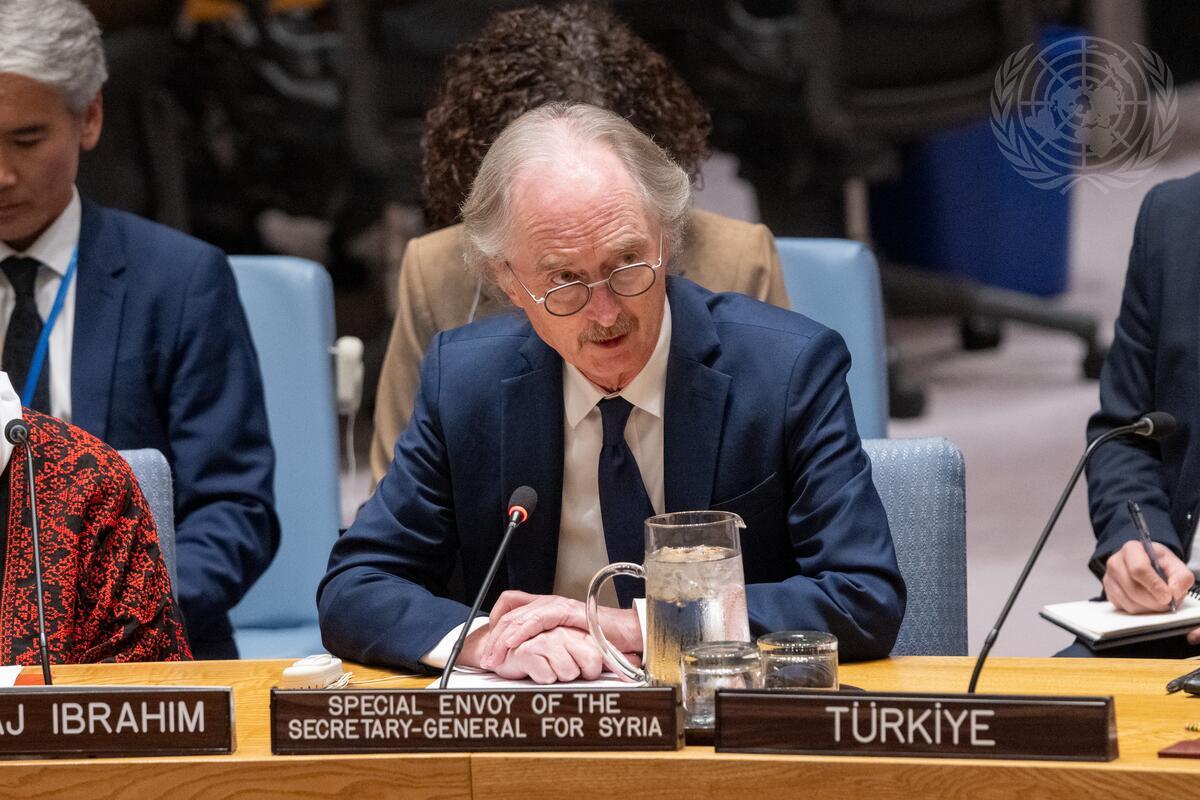Syria: United Nations’s response to the fall of the regime of Bashar Al-Assad

13 years after the outbreak of the war in Syria, which began with the peaceful demonstrations by civilians against the government and the fierce repression enacted by the latter, and which took a broader dimension with the involvement of regional and international actors, the dictatorial regime of President Bashar Al-Assad capitulated with the conquest of Damasco by the united opposition forces under the leadership of the armed group Hayat Tahrir Al-Sham (HTS), labelled as terrorist group by the UN Security Council. The news came a week after the statement by the UN Special Envoy for Syria, Geir O. Pedersen, denouncing the threat, both for the civilian population and for regional and international balances, represented by the dramatic developments in the fightings in Aleppo Governorate and some areas of Idlib and Hama Governorates, affected by the advancement of HTS militias and the government army’s escalating aerial bombardment.
In the face of this sudden evolution of the conflict, UN General Secretary António Guterres said that the Syrian people are called upon to decide the country’s future, and therefore stressed the importance of ensuring the respect for the rights of all and a peaceful political transition with the support of his Special Envoy. In turn, Pedersen expressed the need to urgently bring the Syrian issue to the UN table. He also called on the rebels who have assumed power in the capital to comply with the will of Syrians to preserve the country’s institutions. In occasion of the Doha Forum, he discussed with Turkey, Iran and Russia, altogether with the Foreign Ministers of Saudi Arabia, Egypt, Jordan, Iraq and Qatar, which had expressed their availability to assist the work of the United Nations in implementing Resolution 2254, adopted in 2015 by the Security Council, which laid the foundation for the realization of the peace process in Syria. Finally, the Independent International Commission of Inquiry on the Syrian Arab Republic called on all parties involved to secure the protection of evidence of crimes committed by the regime and access in the country to all independent human rights monitoring bodies.
Despite the cessation of fightings, the rising number of civilian casualties, especially among the most vulnerable, the saturation of hospital capacity, and the uncertainty of the political scenario, which has led the UN to precautionary transfer personnel deemed non strictly necessary for the continuation of essential humanitarian assistance, contribute to maintaining the critical humanitarian situation. In addition, the recent escalation of violence has displaced over a million people from Idlib, Hama, Homs, and Aleppo, fraying a social fabric that already numbered 7 million internally displaced persons and 5 million Syrians who have sought refuge in neighboring countries and elsewhere, according to UN High Commissioner for Refugees (UNHCR). For the latter, the concrete possibility of returning to their country of origin, a fundamental right of all refugees, is foreshadowed after years of exile. At the same time, as Shabia Mantoo, UNHCR spokesperson, pointed out in an interview, this should be done only by their own will and through secure channels. Regarding the gradual suspension by some European countries of Syrians’ asylum applications, Mantoo remarked that these procedures should not be hindered in any way and that individual requests should continue to be evaluated on a case-by-case ensuring impartiality and transparency.

